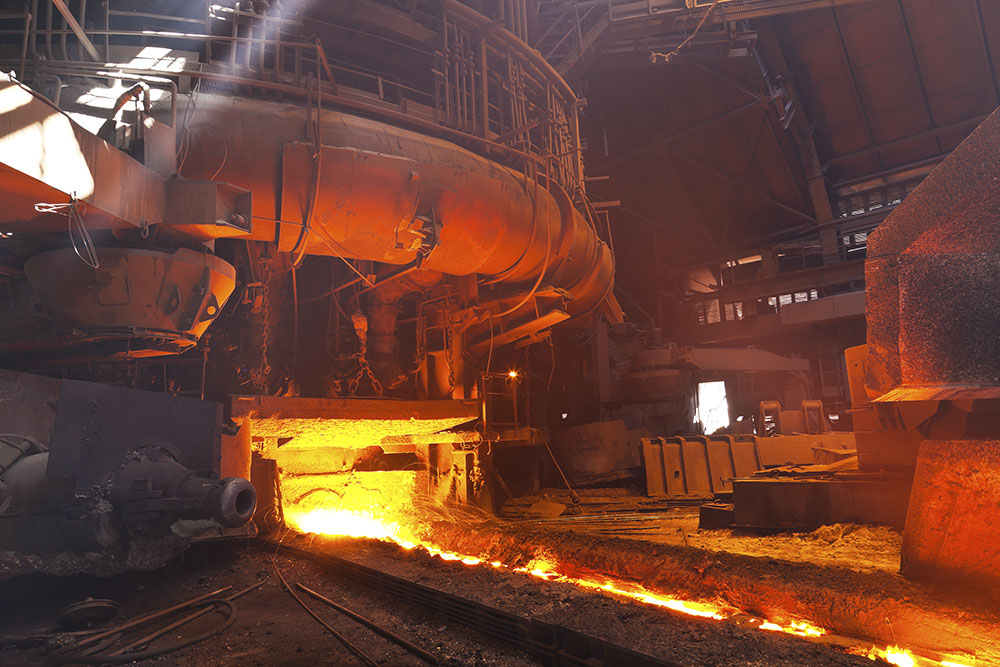
In steel factories, Uninterruptible Power Supply (UPS) systems play a critical role in maintaining operational stability and preventing costly downtime. Both AC UPS (Alternating Current UPS) and DC UPS (Direct Current UPS) are essential components, each serving specific functions that support various aspects of steel production.
The Role of AC UPS in Steel Manufacturing
AC UPS systems are designed to provide backup power to equipment that runs on alternating current (AC). In steel factories, this includes:
- Motors, Pumps, and Fans: These essential components are used throughout the production process, and any disruption in power can halt operations or damage equipment. AC UPS systems ensure continuous operation, safeguarding against power outages or voltage fluctuations.
- Control Systems and PLCs: Programmable Logic Controllers (PLCs) manage critical processes within the plant. Any interruption in their power supply can lead to downtime or safety risks. AC UPS provides a stable power source, ensuring that these sensitive systems remain operational.
- Furnace and Melting Equipment: Steel production relies heavily on furnaces and melting equipment, which must operate without interruption. An AC UPS helps maintain power during short-term outages, ensuring these systems can continue functioning until alternative power sources come online.
- Lighting and Safety Systems: In high-risk environments like steel factories, safety systems and lighting must remain operational at all times. AC UPS ensures that emergency lighting and safety protocols remain active, even during power disruptions.
The Importance of DC UPS in Steel Production
DC UPS systems are specifically used for equipment that operates on direct current (DC). In steel manufacturing, these systems are crucial for:
- Control and Automation Systems: DC UPS ensures continuous power to Distributed Control Systems (DCS) and Supervisory Control and Data Acquisition (SCADA) systems, both of which are vital for monitoring and controlling production processes.
- Emergency Shutdown Systems: In emergencies, having a reliable power source for shutdown systems is critical to ensuring the safe operation of the plant. DC UPS systems provide power to these systems, enabling the safe shutdown of equipment.
- Communication and Networking Equipment: Communication systems, often powered by DC, must remain functional during power outages to ensure seamless communication across the plant. A DC UPS ensures that internal communication and network systems remain uninterrupted.
- Critical Instrumentation: Monitoring tools such as sensors and gauges require continuous power for accurate readings. A DC UPS guarantees that these instruments continue to function, ensuring smooth and efficient production.
Why Both AC and DC UPS Are Essential
- Preventing Downtime: In steel production, any power interruption can result in significant downtime, production losses, and equipment damage. AC and DC UPS systems work together to ensure that critical systems remain operational, preventing disruptions and costly downtime.
- Protecting Equipment: Sensitive electronic systems such as control panels, automation systems, and communication networks can be damaged by voltage fluctuations or outages. UPS systems provide stable, clean power, protecting equipment from potential damage.
- Enhancing Safety: Safety is paramount in steel production environments. UPS systems ensure that emergency shutdown procedures, alarms, and lighting systems remain functional during power outages, reducing the risk of accidents and improving overall safety.
- Ensuring Process Continuity: Steel production is a continuous process, where any disruption can impact product quality and efficiency. Both AC and DC UPS systems work to ensure uninterrupted operation, maintaining consistency and reducing waste.
Key Differences Between AC and DC UPS
- AC UPS: Powers large industrial machinery like motors, pumps, and furnaces, ensuring they remain operational during power disruptions.
- DC UPS: Powers control systems, automation, and safety equipment that require direct current, ensuring that monitoring and control systems function without interruption.
Conclusion
In steel factories, the use of both AC and DC UPS systems is crucial to maintaining operational efficiency, protecting valuable equipment, and ensuring the safety of the workforce. AC UPS systems provide reliable power to heavy equipment, while DC UPS ensures the stability of critical control and monitoring systems. Together, they form a robust power backup solution that enhances the overall reliability and sustainability of steel production processes.
Discover advanced solutions for industrial power backup systems
